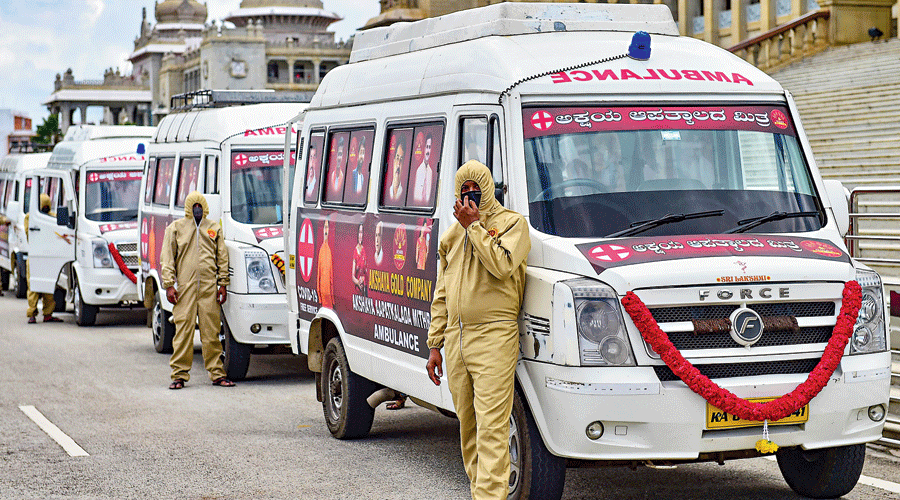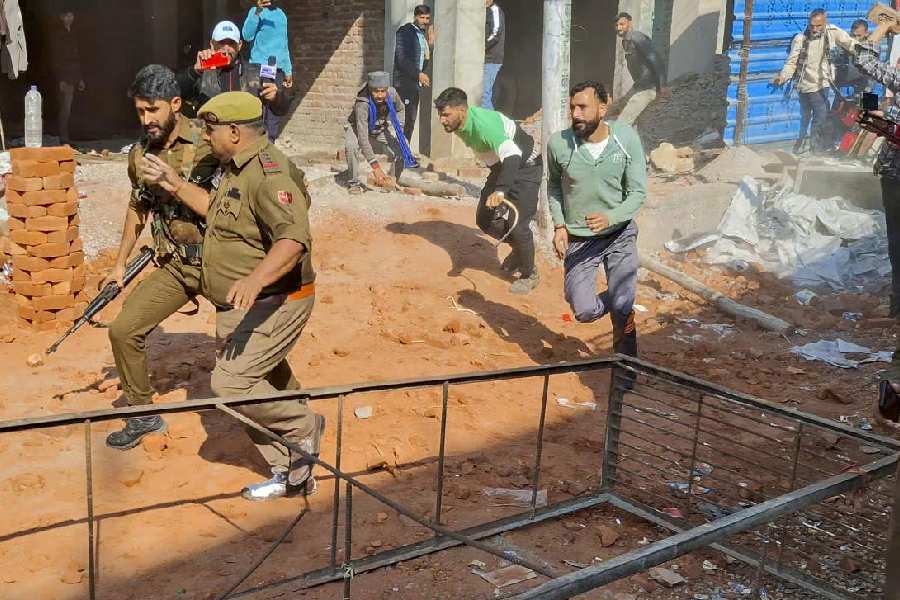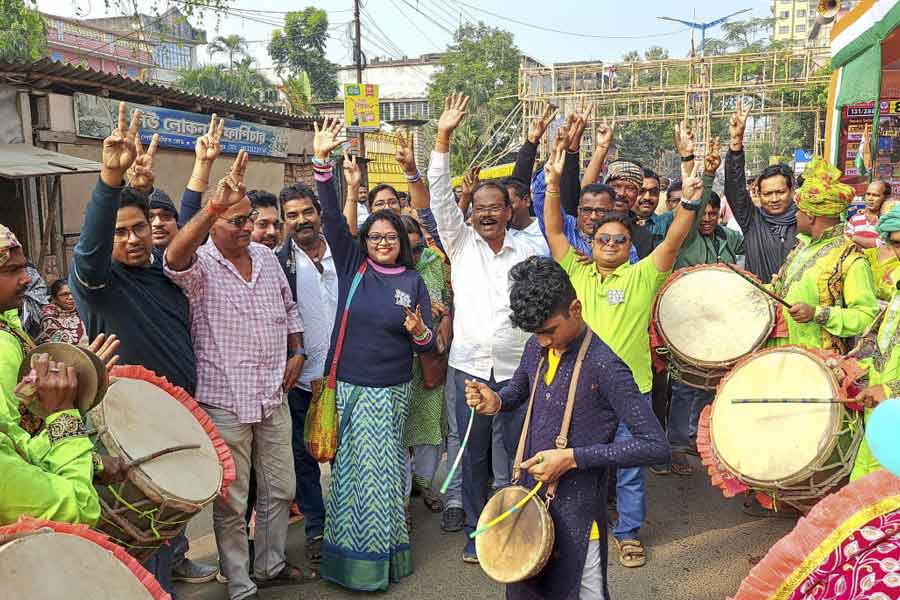Over 3,000 Covid-19 patients are “untraceable” in Bangalore, with the authorities saying these people provided wrong mobile numbers and addresses to the labs where they gave their swab samples.
The fiasco, officials say, reflects a loophole in the practice of civic or health workers making house visits in containment areas and pressuring people to get themselves tested, either as part of random sampling or because they showed symptoms or had been in contact with patients.
A harried Karnataka health department has now introduced a system of sending a one-time password to the stated mobile number of anyone coming to a lab for a Covid-19 test as a verification tool.
Bangalore civic commissioner N. Manjunath Prasad had on Monday revealed that 3,338 people who had tested coronavirus-positive over the past three weeks were untraceable.
His disclosure sent Bangalore into a tizzy and the civic body, the nodal agency for Covid-19 treatment in the city, faced severe criticism.
Officials said that when the civic authorities realised the problem of wrong mobile numbers, they sent teams of corporation and Asha (community health) workers to some of the stated addresses – only to find these were incorrect too.
“We haven’t been able to find anyone so far,” a civic official, who cannot be named, told The Telegraph on Thursday. “A severe staff shortage has made the job more difficult.”
He said the “missing” patients included many who had tested positive 20 days ago.
“We don’t even know whether they are in Bangalore or have moved to other districts. Free movement is allowed within the state,” the official said.
Under a new system introduced this week, as soon as someone seeking a Covid-19 test appears at a lab and states their mobile number, the lab sends the number to the civic body.
The corporation sends an OTP to the number using a mechanism freshly installed at its headquarters. The prospective patient has to show the OTP notification at the lab counter before the swab is taken.
“If the phone number is correct, any missing patient can be traced with police help,” the civic official said.
But to make doubly sure, the labs are also seeking address proof — such as Aadhaar cards, ration cards or driving licences —from the test seekers.
“We are also noting down a contact number — of a family member,” the civic official said.
A few such “missing” Covid-19 patients have been reported from some other districts too.
Former health minister U.T. Khader of the Congress, however, suggested that at least some of the “untraceable” would have provided correct information that was entered inaccurately into the system.
“The main issue is that the government has not provided a proper software tool for the collection of personal data,” he told this newspaper.
“I realised this when I chased the test reports of some people from my (Mangalore) neighbourhood and was told by the swab collectors that they record the personal data on their own mobile phones and later feed them into the system.”
But the civic official said the data were written down on a form and later sent to the labs and the nodal agency in the form of emails.
Till Wednesday, Karnataka had recorded 1.12 lakh coronavirus cases, of whom 67,448 were active patients. More than three-fourths of the current patients — 51,091 —were from Bangalore.
Of the 2,147 Covid-19 deaths in the state, 987 occurred in Bangalore.











